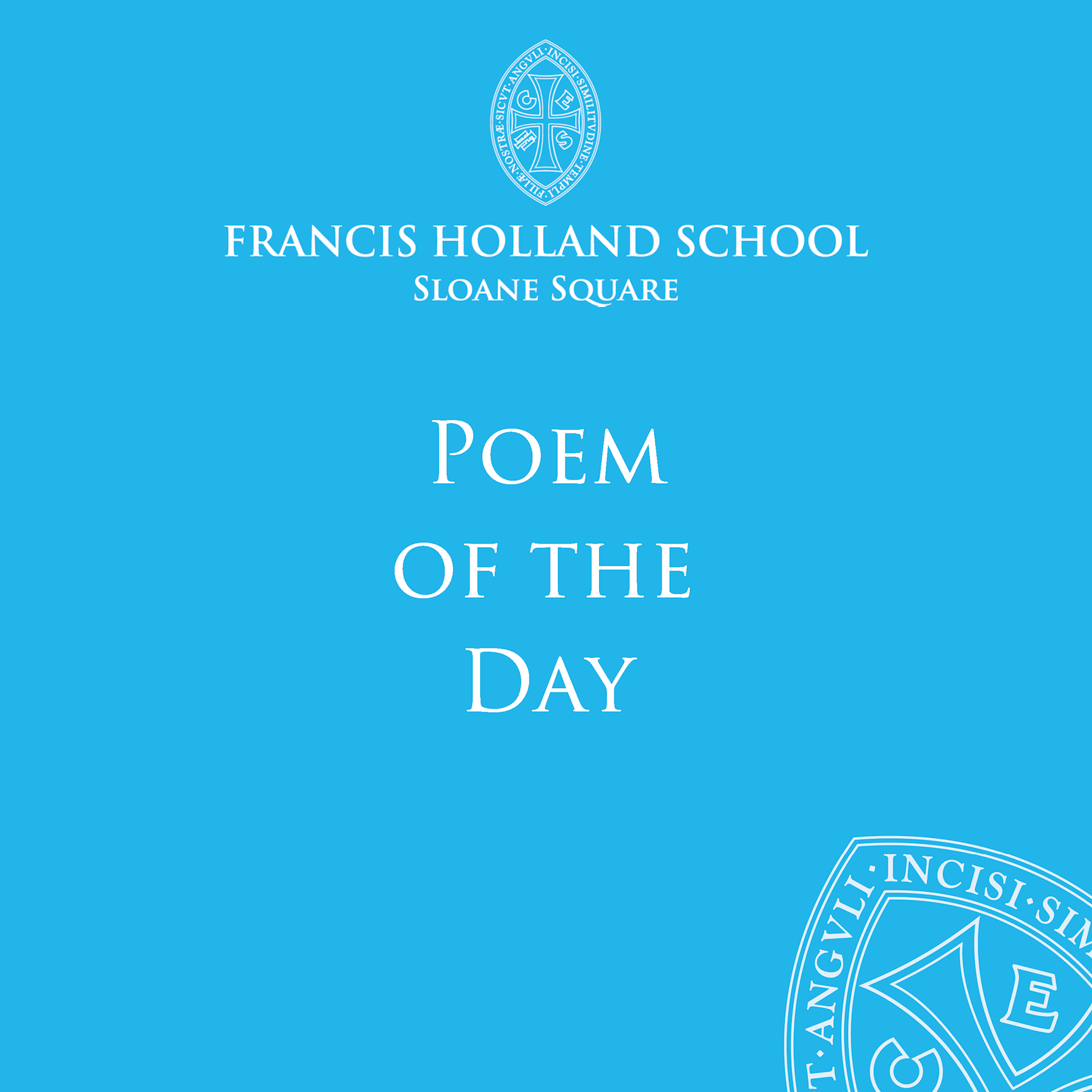Our penultimate Poem of the Day comes from Ms. Kaleja:
Mondnacht by Joseph von Eichendorff
This poem by Joseph von Eichendorff, one of the major writers of romanticism, remains one of my favourite German poems, and some girls might recognise it from the MFL poetry competition. I love its dream like quality, the harmony between heaven and earth. As to the challenges of translation, in German Himmel means both sky and heaven, so the translator had to make an important, mood-setting decision right in the very first line.
Many years ago, my family and I visited Silesia, Poland, where Eichendorff was born, and I fell in love with thelandscape of soft rolling hills dominated by the Schneekoppe, or Sn?ka, the highest mountain of theRiesengebirge, the Giant Mountains, between Poland and the Czech Republic, incidentally a landscape very similar to the Harz mountain range in Lower Saxony and my home town of Hildesheim. So for me, this poembrings back very happy memories of travel with loved ones, of starry moonlit summer nights, feeling at one with nature as well as an occasional yearning to just fly home, quite literally, and so the choice of this poem was also prompted by having just learned of the easing of travel restrictions. At last! Wishing you all a wonderful summer!
Moonlit Night
It was as though Heaven
Had softly kissed the Earth,
So that she in a gleam ofblossom
Had only to dream of him.
The breeze passed through thefields,
The corn swayed gently to and fro,
The forests murmured softly,
The night was so clear with stars.
And my soul spread
Her wings out wide,
Flew across the silent land,
As though flying home.
Translations by Richard Stokes, author of The Book of Lieder (Faber, 2005)
Mondnacht
Joseph von Eichendorff
Es war, als hätt der Himmel,
Die Erde still geküßt,
Daß sie im Blütenschimmer
Von ihm nur träumen müßt.
Die Luft ging durch die Felder,
Die Ähren wogten sacht,
Es rauschten leis die Wälder,
So sternklar war die Nacht.
Und meine Seele spannte
Weit ihre Flügel aus,
Flog durch die stillen Lande,
Als flöge sie nach Haus.
1837














